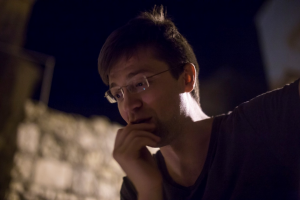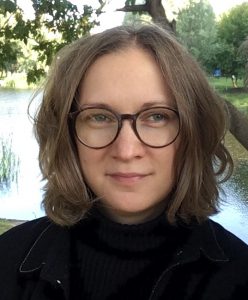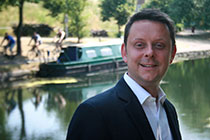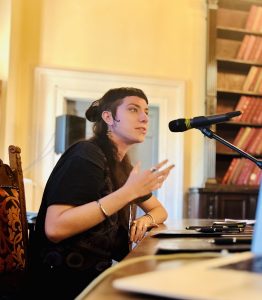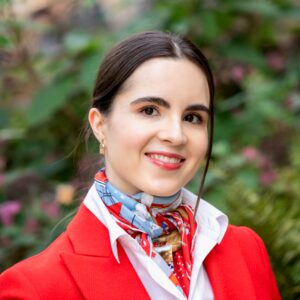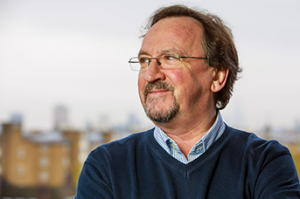Our People
Meet the team, find a research partner
Director
Dr Andy Willimott
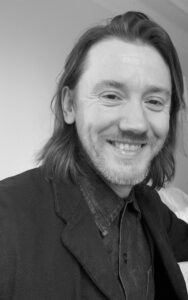
Andy Willimott is Associate Professor in Modern Russian History and Associate Fellow of the Institute for the Humanities & Social Sciences at Queen Mary University of London. His books include the award-winning Living the Revolution: Urban Communes and Soviet Socialism, 1917-1932 (Oxford University Press); Rethinking the Russian Revolution as Historical Divide: Tradition, Rupture, and Modernity (co-ed. with Matthias Neumann), (Routledge); and Openness and Idealism: Soviet Posters 1985-1991 (co-ed. with Carrol, Karmel, Shayevich), (Skira). His research has been funded by the Arts & Humanities Research Council (UK) and the Leverhulme Trust. He was also recipient of a British Academy Rising Star Award (2017-18). His current research project examines how radical movements and regimes engaged with the past and historical memory, as well as the transnational connections between France and Russia.
Deputy Director
Prof Jeremy Hicks
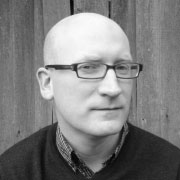
Jeremy Hicks is Professor of Russian Culture and Film at Queen Mary University of London, where he teaches courses on Russian film history and literature. He is the author of four books and many articles on Russian and Soviet history, film, especially documentary, literature and journalism. His publications include: Dziga Vertov: Defining Documentary Film (London and New York, 2007) and First Films of the Holocaust: Soviet Cinema and the Genocide of the Jews, 1938-46 (Pittsburgh, 2012), which won the 2013 ASEEES Wayne Vucinich Prize ‘for the most important contribution to Russian, Eurasian, and East European studies in any discipline of the humanities or social sciences.’ His most recent book is: The Victory Banner over the Reichstag: Film, Document and Ritual in Russia’s Contested Memory of World War Two (Pittsburgh 2020). He is currently researching the relationship between film and the international famine relief campaign to Soviet Russia and Ukraine in 1921, and he frequently reviews and writes about contemporary documentary in the former Soviet countries.
Faculty Members
Dr Natalya Chernyshova

Natalya Chernyshova is Associate Professor in Modern European History at Queen Mary University of London, where she teaches courses on Soviet, Belarusian, and Ukrainian history as well as the Cold War. Her research and publications focus on Soviet Belarus, Soviet nationalities politics, and everyday life during late socialism. She is the author of Soviet Consumer Culture in the Brezhnev Era (Routledge, 2013), as well as book chapters and journal articles in Kritika, Europe-Asia Studies, Ab Imperio and others. Natalya is currently writing her second monograph, a history of Soviet Belarus in the long 1970s told through the prism of life and career of its popular communist leader, Petr Masherau (the project was funded by the British Academy Mid-Career Fellowship in 2020-2022). She regularly comments on Belarusian and Soviet history and current affairs for media in the UK and internationally.
Prof Galin Tihanov

Galin Tihanov is the George Steiner Professor of Comparative Literature at Queen Mary University of London. He has held visiting professorships at universities in Europe, North and South America, and Asia. He is the author of six books, including The Birth and Death of Literary Theory: Regimes of Relevance in Russia and Beyond (Stanford UP, 2019) which won the 2020 AATSEEL Prize for “best book in literary studies”. Tihanov has been elected to the British Academy (2021) and to Academia Europaea (2012); he is past president of the ICLA Committee on Literary Theory and member of the Executive Board of the Institute for World Literature at Harvard University, as well as Honorary Scientific Advisor to the Institute of Foreign Literatures, CASS, Beijing.
Prof Brigitte Granville
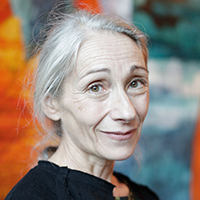
Brigitte Granville is Professor of International Economics and Economic Policy in the School of Business and Management at Queen Mary University of London, and Head of the Business Analytics and Applied Economics department. Brigitte is known for her work on monetary economics. She is the author of Remembering Inflation (2013) published by Princeton University Press and What Ails France? published in April 2021 by McGill-Queen’s University Press, as well as co-author of Russia’s post-Communist Economy published by Oxford University Press. She is a regular columnist of Project Syndicate and The Conversation. Concurrently with her present appointment in Queen Mary University, Brigitte is a Trustee of Effective Intervention, a UK charity involved in research-focused projects on infant mortality and primary education in India and West Africa. She is currently writing a book on the Economic History of Modern Russia.
Dr Jane Freeland
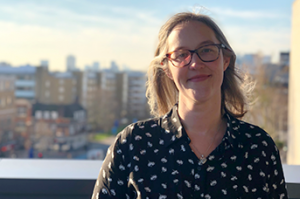
Jane Freeland is Assistant Professor in History and Fellow of the Institute for the Humanities and Social Sciences (IHSS). She is an historian of gender and feminism in modern Germany, with a focus on divided Germany, especially the German Democratic Republic. Her recent book Feminist Transformations and Domestic Violence Activism in Divided Berlin, 1968-2002 (OUP, 2022) situates domestic violence activism within a broader history of feminism in post-war Germany, and traces the evolution and impact of this movement across political division and reunification. She has also published in German History, Geschichte und Gesellschaft, and the Journal of Women’s History.
Dr Ksenia Northmore-Bell
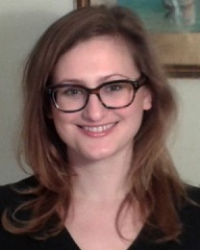
Ksenia Northmore-Bell is Assistant Professor in Comparative Politics at Queen Mary University of London. Prior to joining Queen Mary, in 2018, she held a British Academy Post-doctoral Research Fellowship at the University of Nottingham. She received her MPhil and DPhil from the University of Oxford and her BA in Political Science and Russian from Boston College, MA, USA. For 2006-2007, she received a Fulbright Scholarship to carry out research on civil society formation and homeowners associations in St Petersburg, Russia. Dr Northmore-Ball’s research interests span comparative politics and political behaviour, particularly in the context of East European new democracies, as well as Russia. Her research applies advanced statistical methods. Her favoured topics are voter turnout, political and economic inequality, authoritarian legacies, and political socialization in new democracies.
Dr Mario Slugan
Mario Slogan is Associate Professor in Film Studies and Associate Fellow of the Institute for Humanities and Social Sciences (IHSS) at Queen Mary University of London. His research stands on the intersection of film studies, philosophy and German studies. His publications include Montage as Perceptual Experience: Berlin Alexanderplatz from Döblin to Fassbinder (Camden House, 2017). Mario has also co-edited five volumes including special issues of Apparatus titled Fiction in Central and Eastern European Film Theory and Practice (with J. Alexander Bareis, 8 2019) and Pandemic Cinema in Central and Eastern Europe (with Raoul Eshelman and Denise J. Youngblood, 12 2021). He is also an editor of the open access journal Apparatus. Film, Media and Digital Cultures of Central and Eastern Europe and Fellow of the Society for the Cognitive Studies of the Moving Image.
Dr Maria Chehonadskih
Maria Chehonadskih is Assistant Professor of Modern Languages and Cultures at Queen Mary University of London. Her research concentrates on Soviet epistemologies across philosophy, literature and art, as well as on post-Soviet politics and culture. Maria holds a PhD in Philosophy from the Centre for Research in Modern European Philosophy, Kingston University, and obtained her undergraduate and postgraduate degrees from the Voronezh State University, Russia, and the Russian State University for the Humanities, Russia. Before joining Queen Mary, she was a Max Hayward Visiting Fellow at St Antony’s College, Oxford, 2019-2021, and an Associate Lecturer at Central St. Martins, University of the Arts, 2018-2022. She is author of Alexander Bogdanov and the Politics of Knowledge After the October Revolution (Palgrave Macmillan).
Dr Tamara Popic
 Tamara Popic is Assistant Professor in Public and Social Policy at the School of Politics and IR at Queen Many University of London (QMUL). She is the author of Health Reforms in Post-Communist Eastern Europe: The Politics of Policy Learning (2023, Palgrave Macmillan) and one of the co-editors of Health Politics in Europe: A Handbook(2021, Oxford University Press). Prior to joining QMUL, Tamara was a postdoctoral fellow at the European University Institute in Florence and at the University of Lisbon. She received her PhD from the European University, MA from Humboldt University Berlin, and BA from the University of Belgrade. Tamara’s research interests include post-communist more broadly European welfare state and healthcare policy developments, public attitudes toward healthcare and the role of discourse in social policy reforms in the context of crisis and beyond.
Tamara Popic is Assistant Professor in Public and Social Policy at the School of Politics and IR at Queen Many University of London (QMUL). She is the author of Health Reforms in Post-Communist Eastern Europe: The Politics of Policy Learning (2023, Palgrave Macmillan) and one of the co-editors of Health Politics in Europe: A Handbook(2021, Oxford University Press). Prior to joining QMUL, Tamara was a postdoctoral fellow at the European University Institute in Florence and at the University of Lisbon. She received her PhD from the European University, MA from Humboldt University Berlin, and BA from the University of Belgrade. Tamara’s research interests include post-communist more broadly European welfare state and healthcare policy developments, public attitudes toward healthcare and the role of discourse in social policy reforms in the context of crisis and beyond.
Dr Olga Makarova

Dr Rowena Abdul Razz
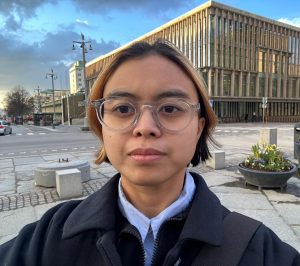
Dr Nadezda Bragina
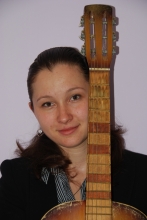
Nadezda Bragina is a Russian-born teacher of the Russian and English languages. She is Associate Professor and Co-ordinator in Russian Language Studies at Queen Mary University of London. She graduated from one of the most prestigious linguistic universities of Russia, Moscow State Linguistic University. Later she received CELTA (Cambridge Certificate in English Language Teaching for Adults) followed by a certificate of advanced training in teaching Russian as a foreign language. Her PhD research focused on teaching approaches analysis and development of new methods to introduce Russian language and culture to English-speaking students.
Dr James Ellison

James Ellison is Reader in International History at Queen Mary University of London. He has published on Britain’s relationships with Europe and the United States after 1945 and, more widely, on the history of the Cold War and Europe. He is author of Threatening Europe: Britain and the Creation of the European Community, 1955-58 and The United States, Britain and the Transatlantic Crisis: Rising to the Gaullist Challenge, 1963-1968. He is currently researching UK-Russian relations during and after the Cold War.
Dr Kinga Bloch

Kinga Bloch is Assistant Professor and Deputy Director of the Leo Baeck Institute (LBI) at Queen Mary University of London. Her research and teaching focuses on the experiences and representations of Jews in Central and Eastern Europe.
Prof Nadia Valman
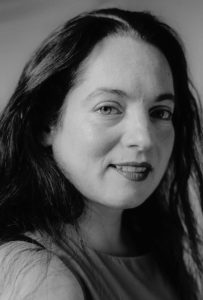
Nadia Valman is Professor of Urban Literature at Queen Mary University of London. She is a scholar of nineteenth and twentieth century urban culture with special interests in religion, gender and migrancy. She studied English at the Universities of Cambridge and Leeds, and completed her PhD at QMUL. Her recent research has focused on the Jewish and East European diaspora of east London. Her books include The Jewess in Nineteenth-Century British Literary Culture (Cambridge University Press), (with Bryan Cheyette) The Image of the Jew in European Liberal Culture, 1789-1914 (Vallentine Mitchell), (with Eitan Bar-Yosef) The ‘Jew’ in Edwardian Culture: Between the East End and East Africa (Palgrave), and (with Tony Kushner) Remembering Cable Street: Fascism and Anti-Fascism in British Society (Vallentine Mitchell). She is a participant and advisor of the CEREES in east London Group
Prof Alastair Owens
Alastair Owens is Professor of Historical Geography at Queen Mary University of London. He has published widely on the topic of urban Britain since c.1800. He has a particular interest in Victorian London, including the émigré and radical communities of east London. Alastair has served as Head of the School of Geography and Deputy Dean for Education in the Faculty of Humanities and Social Sciences at QMUL. He is a participant and advisor of the CEREES in east London Group.
Research Members
Dr Petr Budrin
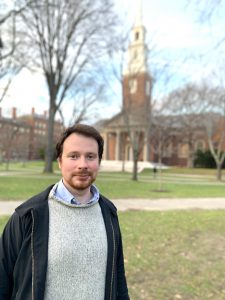
Dr Isabel Jacobs
Isabel Jacobs holds a PhD in Comparative Literature from Queen Mary University of London. Funded by the London Arts & Humanities Partnership, her dissertation explores aesthetic elements in the work of Russo-French philosopher Alexandre Kojève (1902-1968). More broadly, her research addresses entanglements between philosophy and migration, with a focus on Eastern European émigré and late Soviet thought. She is interested in the philosophy of time; rhythm and repetition; animal philosophy; eschatology and utopianism. She studied Philosophy and Slavic Studies (Russian/Czech/Yiddish) in Heidelberg, Prague, Saint Petersburg and Turin. She holds an MA in Russian and East European Literature and Culture (Russian/Ukrainian) from University College London. In 2022, she was a Fellow at the German Center for Art History in Paris in 2022. She co-organised the International Workshop Kojève: Here and Now. Her articles and reviews appeared in Radical Philosophy, Studies in East European Thought, Little White Lies, Marx & Philosophy Review of Books, and others.
Ms Veselina Dzhumbeva

Veselina Dzhumbeva is a PhD candidate and Teaching Assistant whose work focuses on émigré women’s writing in interwar Paris. Among her topics of interest are gender and national identity, motherhood and the relationship between self and the body. The main emphasis of her thesis falls on the often overlooked figure of Ekaterina Bakunina and her two novels Telo and Lyubov’ k shesterym. Veselina holds a BA in Comparative Literature and Film as well as a MA in East European Studies from the Free University Berlin. Her further research interests include women’s literature of the perestroika period, gender and film, Bulgarian cinema and Bulgarian modernist literature. Vaseline is also Postgrad Rep for the British Association of Slavonic and East European Studies (BASEES).
Ms Assiya Issemberdiyeva

Assiya Issemberdiyeva is a PhD student and Teaching Assistant in the School of the Arts at the Queen Mary University of London. She holds a fully funded Collaborative Doctoral Award from the London Arts and Humanities Partnership, a doctoral training program funded by the Arts and Humanities Research Council. Her thesis, supervised by Professor Jeremy Hicks and Doctor Guy Westwell, explores the representation (and its British reception) of Central Asian identities in wartime Soviet cinema. Assiya studied Films (MA) at Queen Mary University of London and Journalism (BA, MA) at Al-Farabi Kazakh National University. She programmed the Kazakh Film Week in London (2019, 2021), led a course on film language (2022, Internews), and presented the TV-show KinoScope for El Arna (Kazakhstan).
Dr Gary Lawson
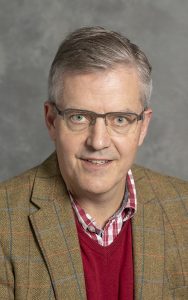
Gary Lawson holds a PhD in History from Queen Mary University of London. His research focuses on Nikolai Aleksandrovich Semashko and the foundations of Soviet healthcare. Gary studied Economics and Politics at SOAS, University of London, graduating in 1986, and obtained an MBA from the Cranfield School of Management, in 1991. After a career in financial services and healthcare, he returned to academia to study Russian and Post-Soviet Politics and obtained an MA with Distinction from UCL School of Slavonic and East European Studies in 2018. He is a fellow of the Royal Society for the encouragement of Arts, Manufactures and Commerce.
Affiliate Members
Robert Chandler (Translator/QMUL)

Kate McElvanney is Curator of the Slavonic and East European Collections at the British Library, London. She completed her PhD, in 2019, under an AHRC Collaborative Doctoral Partnership between the British Library and Queen Mary University of London. Katie’s research examined and compared the role of women in Bolshevik and anti-Bolshevik journalism during the October Revolution and civil wars. During her PhD, she worked closely with the British Library on the 2017 exhibition “Russian Revolution: Hope, Tragedy, Myths.”
Read Katie’s British Library articles and guide to materials here
Dr Robert Henderson (British Library/QMUL)
Robert Henderson gained an MA in Russian and a Diploma in Slavonic Languages at the University of Glasgow before taking up the post of Russian Curator at the British Library. Some twenty years later he returned to academic studies in the School of History, Queen Mary University of London, and in 2009 completed his doctoral research into the Russian political emigration in late nineteenth century London. He has published extensively in that field. Dr Henderson is an Honorary Research Fellow in the School of History and an Affiliate of CEREES at QMUL. He is currently involved in research into relations between the Russian political emigration and the Scottish Left.
Prof. Dr. Benjamin Schenk (University of Basel)

Benjamin Schenk is Professor of Eastern European History and Modern General History at the History Department of the University of Basel, Switzerland. He is the co-lead on the Queen Mary–Basel Graduate Exchange Programme and an External Advisor on the CEREES Steering Committee. He is author of Russlands Fahrt in die Moderne: Mobilität und sozialer Raum im Eisenbahnzeitalter (2014) and Aleksandr Nevskij: Heiliger – Fürst–Nationalheld: eine Erinnerungsfigur im russischen kulturellen Gedächtnis, 1263-2000 (2007). His current research explores the experience of transnationalism and migration through European ports.
Prof. Dr. Olena Palko (University of Basel)

Olena Palko is Assistant Professor of Eastern European History at the History Department of the University of Basel, Switzerland, an academic participant of the Queen Mary–Basel Graduate Exchange Programme, and an External Advisor on the CEREES Steering Committee. She is author of the award-winning Making Ukraine Soviet: Literature and Cultural Politics under Lenin and Stalin, which challenges longstanding assumptions about how Soviet cultural models were forged between centre and periphery. Her current research project examines the development of Soviet minorities policy in Ukraine across the 1920s–revealing how Soviet officials classified society along ethnic lines and contributed greatly to the construction of ethnic identities that would come to outlive their creators.
Dr Jordan Gans-Morse (Northwestern University)
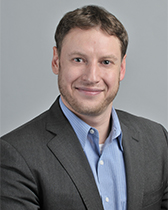
Jordan Gans-Morse is Associate Professor of Political Science at Northwestern University, Chicago, USA. He is Director of the Russian, Eurasian, and East European Studies (REEES) Program at Northwestern University, the CEREES-REEES coordinator for the QMUL-NU Graduate Exchange, and a member of the CEREES Steering Committee. His research focuses on corruption, the rule of law, property rights, and political and economic transitions. He is the author of Property Rights in Post-Soviet Russia: Violence, Corruption, and Demand for Law (Cambridge University Press). His commentaries have been published in the Chicago Tribune, The Hill, The Moscow Times, US News & World Report, and The Washington Post: The Monkey Cage. He received his PhD from UC Berkeley, in 2011, and, during the 2016-2017 academic year, served as a Fulbright Scholar teaching and conducting research in Ukraine.
Dr Jeff Eden (Northwestern University)

Jeff Eden is Assistant Professor at Northwestern University, Chicago, and member of the CEREES Steering Committee. He is an historian of Russia and Central Asia. His books include God Save the USSR: Soviet Muslims and the Second World War (Oxford, 2021), Slavery and Empire in Central Asia (Cambridge, 2018), and Warrior Saints of the Silk Road (Brill, 2018). Before joining Northwestern, he was Pandion haliaetus (Seahawk Honorary) Assistant Professor of History at St. Mary’s College of Maryland, and before that he was Mellon Postdoctoral Fellow at Cornell University’s Society for the Humanities. He is currently working on two book projects, one about the Pugachev Rebellion in Russia (1773-1775) and the other about the Caucasus during the Second World War. At Northwestern, he teaches classes on Russian, Central Asian, and global history.
Dr Vera Kaplan (Tel Aviv University)
Vera Kapan is the Acting Director of The Cummings Center for Russian East European Studies, Tel Aviv University, Israel. She is the CEREES-Cummings coordinator for the QMUL-Tel Aviv University Graduate Exchange Programme. Her research interests lie in the areas of cultural and social history and history of education in Russia. She is author of Historians and Historical Societies in Imperial Russia (2017). Dr Kaplan has also written several chapters and articles on the history of Russian education as well as on educational policy and history teaching in contemporary Russia. She has co-edited two volumes entitled, The Teaching of History in Contemporary Russia: Trends and Perspectives (1999, with Pinchas Agmon and Liubov Ermolaeva) and Educational Reform in Post-Soviet Russia: Legacies and Prospects (2005, with Ben Eklof and Larry E. Holmes).
Dr Joseph Cronin (Leo Baeck Institute, London)
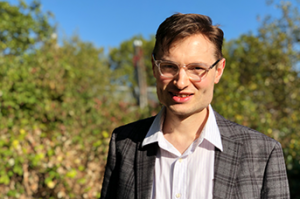
Joseph Cronin is Director of the Leo Baeck Institute, London. He taught at Queen Mary University of London between 2017 and 2023, specialising in modern German, Jewish, and East European history. His book Russian-Speaking Jews in Germany’s Jewish Communities explored the large-scale migration of Jews from the former Soviet Union to Germany between 1990 and 2005, and the impact this made on Jewish communities. Joseph has also published on Jewish identities in postwar West Germany, and on Jewish refugees in British India during the Second World War.
Petros Petrikkos (University of Nicosia, Cyprus)
 Petros Petrikkos is a full-time researcher and part-time lecturer at the University of Nicosia, Cyprus and a Project Manager and Research Associate at the Diplomatic Academy, specialising in Security Studies. A QMUL alumnus, Petros is a holder of the HARNO’s (Estonian Youth Board) international researchers grant and as of February 2024, a Visiting Researcher at Tallinn University, Estonia. Petros has advised the government of the Republic of Cyprus on matters pertaining to diplomatic and military missions, as well as governance and public administration policy. Moreover, he is a fellow at the Doctoral School of the European Security and Defence College. His PhD thesis examines the ways through which small states in the European Union such as Cyprus and Estonia make use of the EU’s security and defence architecture to combat existential threats, such as hybrid warfare. His research interests focus on ontological security, small states, national security, Eastern Europe, Eastern Mediterranean, comparative politics, and hybrid threats.
Petros Petrikkos is a full-time researcher and part-time lecturer at the University of Nicosia, Cyprus and a Project Manager and Research Associate at the Diplomatic Academy, specialising in Security Studies. A QMUL alumnus, Petros is a holder of the HARNO’s (Estonian Youth Board) international researchers grant and as of February 2024, a Visiting Researcher at Tallinn University, Estonia. Petros has advised the government of the Republic of Cyprus on matters pertaining to diplomatic and military missions, as well as governance and public administration policy. Moreover, he is a fellow at the Doctoral School of the European Security and Defence College. His PhD thesis examines the ways through which small states in the European Union such as Cyprus and Estonia make use of the EU’s security and defence architecture to combat existential threats, such as hybrid warfare. His research interests focus on ontological security, small states, national security, Eastern Europe, Eastern Mediterranean, comparative politics, and hybrid threats.
Noah Birksted-Breed (Sputnik Theatre Company/QMUL)

Noah Birksted-Breen is a researcher of politics and performance with a specialism in Russia and Eastern Europe. He completed his PhD at Queen Mary University of London. “Alternative Voices in an Acquiescent Society: Translating Russian New Drama (2000-2014)”, assessed dissident playwriting cultures in post-Soviet Russia. He has held two postdoctoral research positions at University of Oxford (2017-2021) and one at University of Leeds (2022). He is currently Teaching Fellow at Queen Mary University of London (2022-ongoing) in the School of Politics and International Relations, teaching Undergraduate modules “Politics in Action” and “Theories of International Relations”. Noah has a creative practice through his translation and directing work for the company that he founded, Sputnik Theatre Company, which has staged performances at venues including Soho Theatre, Southwark Playhouse, Battersea Arts Centre, radio dramas for BBC Radio 3 and online films. Sputnik has a track record of Impact projects in the Higher Education sector, including as an official partner on Creative Multilingualism (University of Oxford) – with Sputnik production, Oxygen, selected as an Impact Case Study for University of Oxford in the REF2021 (submitted to UOA 26A Modern Languages). Noah is committed to working sustainably as researcher and theatre-maker, and he co-founded the Oxford Flying Less Group with output including a podcast.

Shape the Conversation
To join our mailing list, participate in our programme of events, or find out how we can support your research, please contact hss-cerees@qmul.ac.uk
